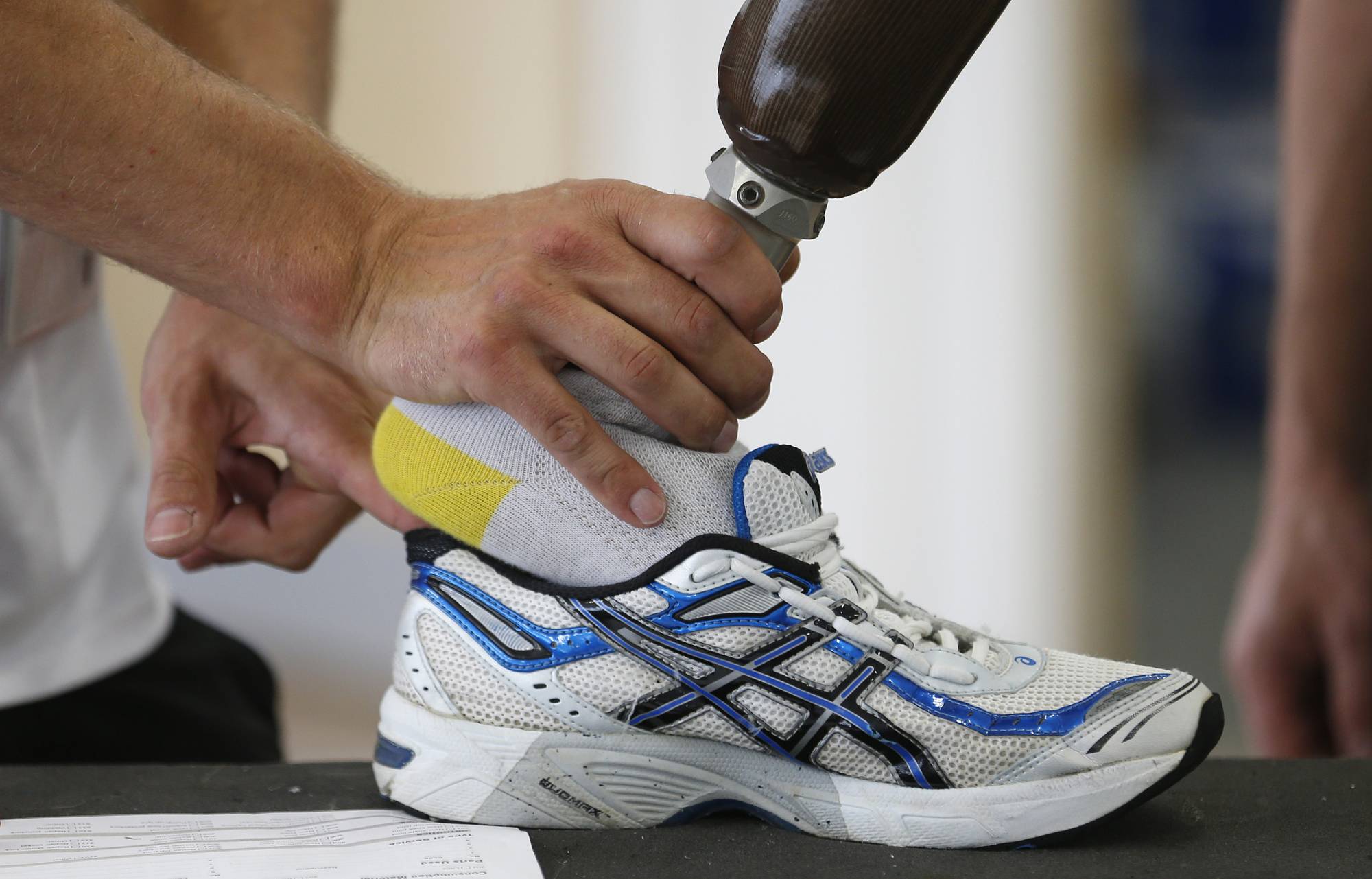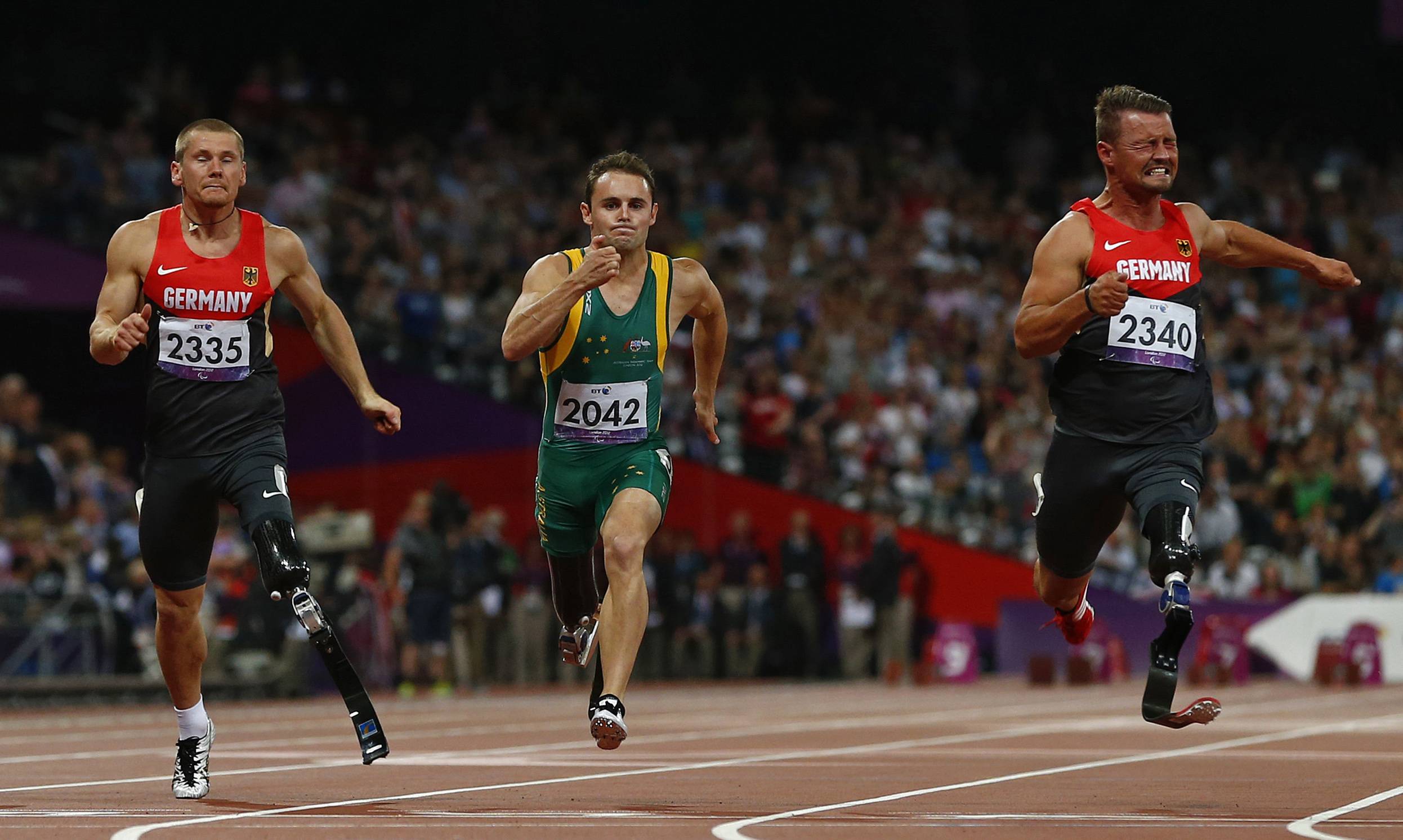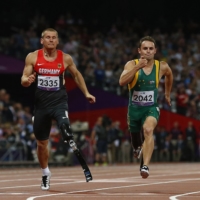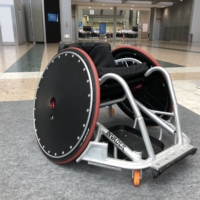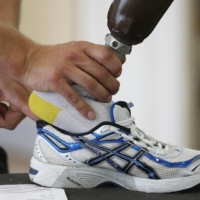Heinrich Popow was about five minutes away from running in a 100-meter final at the 2012 London Paralympics when part of his prosthetic leg broke.
Facing one of the most important races of his life, the German needed a solution and needed one fast. Luckily, help was right around the corner. Ottobock, the German firm that handles repairs at the Paralympics, took Popow’s prosthetic and quickly went to work.
The company was able to fix Popow’s leg and get him to the starting line on time. The German did the rest, racing to gold in the 100-meter T42 final.
"I got it fixed and the result was a gold medal," Popow, who had his left leg amputated below the knee at age 8 due to a tumor, said Friday. "So I'm quite happy that I could make it, because 12 years of preparation could have been done five minutes before my race. This gold medal changed my whole life."
When Paralympians need repairs — for wheelchairs, prosthetics or other equipment — they turn to Ottobock. While the athletes are working hard in competition, Ottobock's team of engineers labors behind the scenes to keep them on the field of play.
"For us athletes, it's good (when) we don't have to go to Ottobock," said Popow, who now works for the company. "But it's good to know that Ottobock is there. It's important to know, mentally. This is one of the most important services we can have during the Paralympics."
Ottobock has been a Paralympic partner since 1988. For these Games, the company has a 700-square-meter repair center set up in the Paralympic Village.
It also has smaller workshops at over a dozen competition venues.
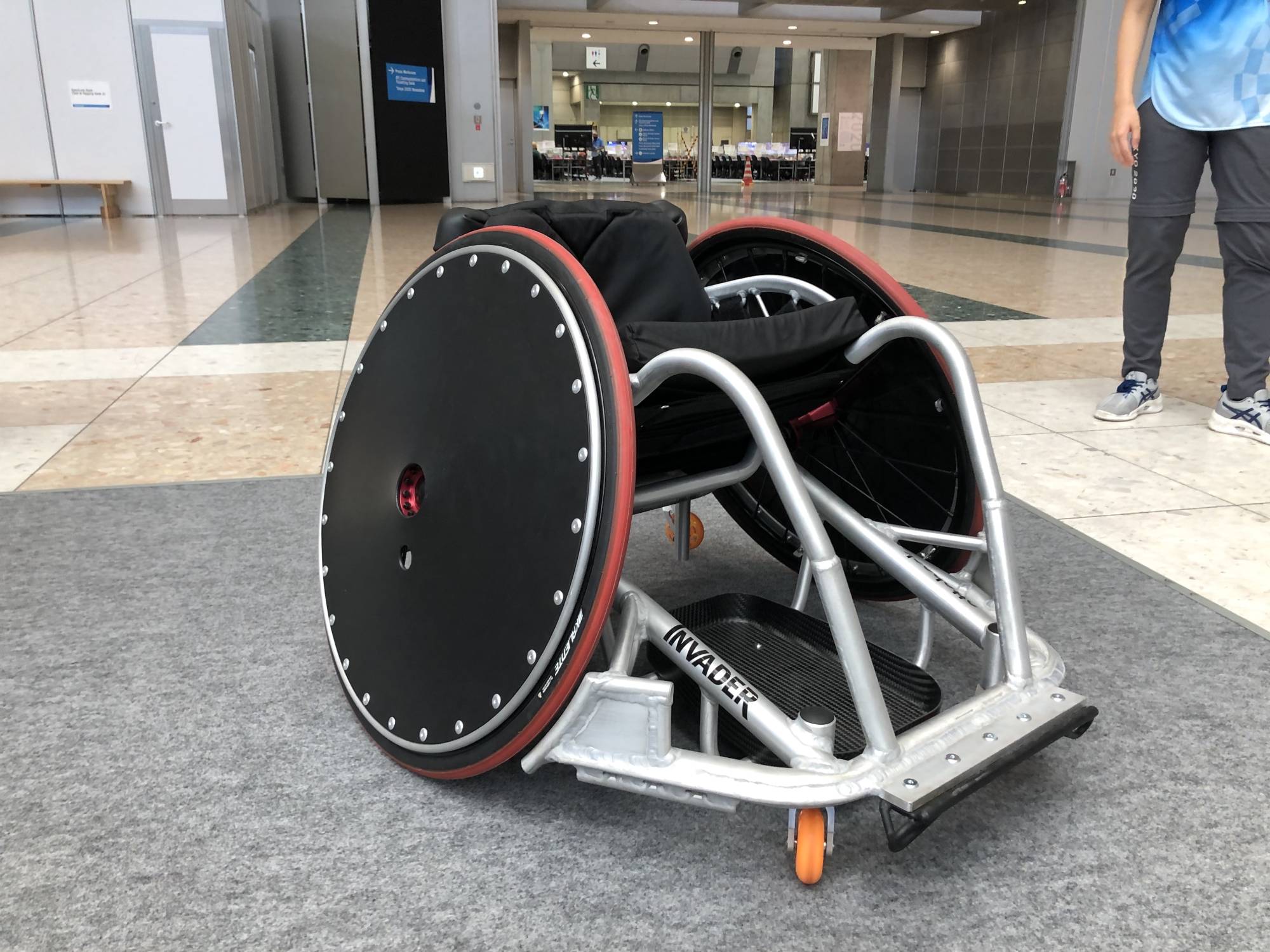
"There, we can support the athletes just before they go to the field of play or even during the match," said Peter Franzel, Ottobock's head of events and exhibitions. "For example at tennis, if the tire is broken during the match, we have 15 minutes to change the tire and then they can go back to the field of play again. For wheelchair basketball, we can also do some repairs during the match.
"For rugby, we also have a welding unit in the venue. They bang together, it's a very rough sport, sometimes the frame breaks. We have the welding unit there and we can do the repair onsite and they can go back in the match after a couple of minutes."
The goal is to keep athletes on the field.
"The reason we are offering services on location at the competition venues is that we wanted to avoid a situation where a para athlete has to abandon his or her dream of competing due to mechanical problems,” marketing manager Kana Fukaya said.
Franzel estimates the company does "around 2,000" repairs during the course of a normal Paralympic Games and the team has been busy in Tokyo.
"Until yesterday evening, we (had done) over 800 repairs already," Franzel said, estimating the total had surpassed 900 by Friday afternoon.
Ottobock employs prosthetists, orthotists, wheelchair technicians and welders as part of its team. Athletes and others who need repairs, whether for competition or daily life, simply need to visit the repair center. The repairs are made, whether the athlete’s equipment was made by Ottobock or another company, for free. The repair center is open from 8 a.m. to 11 p.m. and the company also has a 24-hour hotline for emergencies.
Ottobock also takes care to meet athletes’ specific needs when they bring in their equipment.
"Each athlete is individual," Franzel said. "Each disability is individual. If you have 40 amputees, there is no amputation that is the same, because everyone has a different stump and different needs and different lengths. This is always highly individual and highly specialized for the athlete."
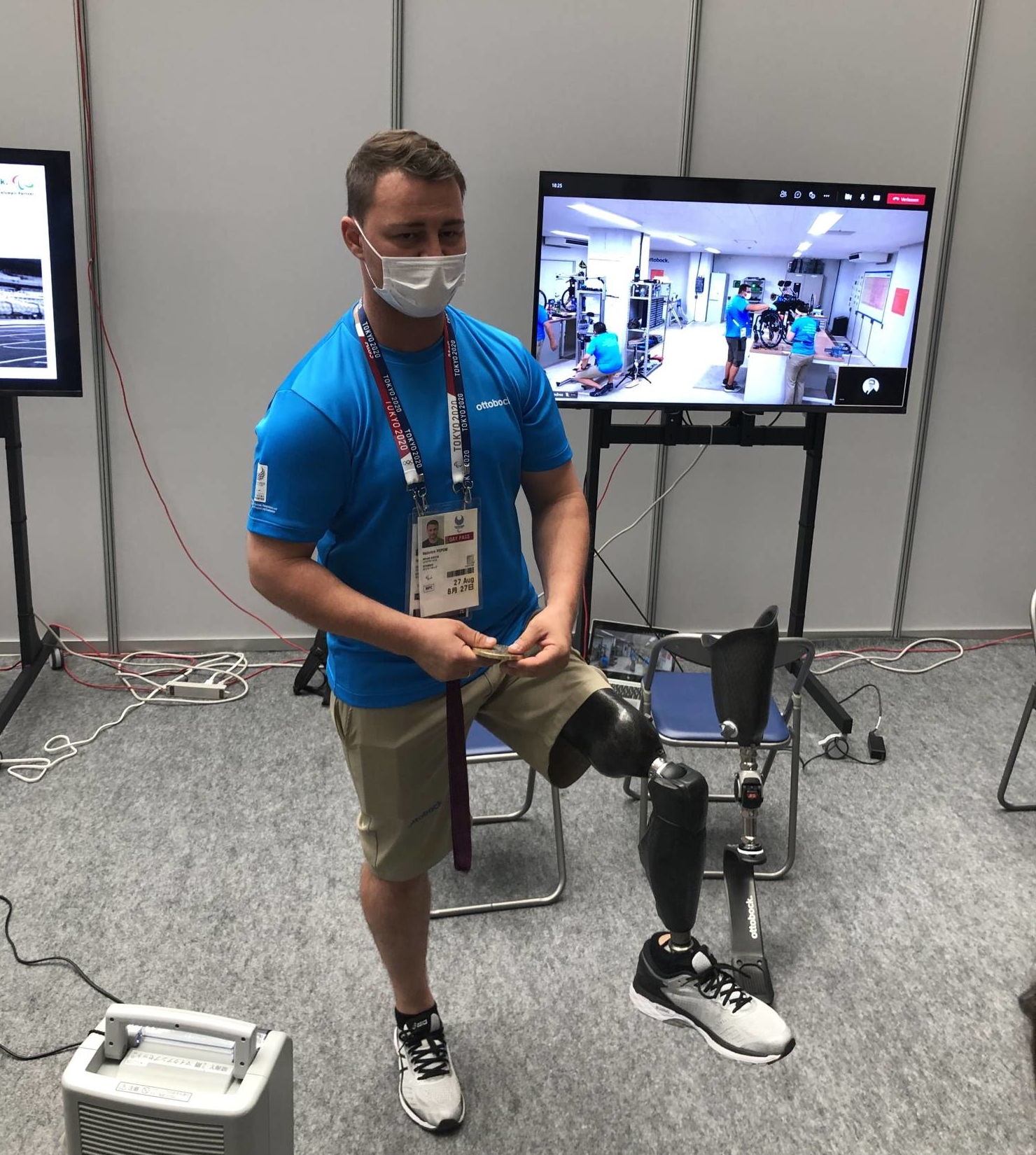
Athletes can also use the workshop themselves.
"We even have athletes who are technicians," Popow said. "Today we had one athlete from Switzerland, she's a technician. She went to the workshop and fixed her own problem for (her competition) in three days. So athletes who are technicians can join our workshop and do their repairs.
Ottobock has a team of 106 working in Tokyo. The company also brought over 17,000 spare parts — including 600 wheelchair tires and 250 parts for prosthetic limbs — and 18 tons of machinery to Japan. It is also in the early stages of using 3D printing technology to develop parts. The repair center for the Tokyo Games opened Aug. 17 and Franzel estimates they have done 80-90 repairs per day.
Ottobock was founded in Berlin in 1919. The company specializes in prosthetic technology and manufactures wheelchairs, prosthetics and artificial limbs. Ottobock has performed repairs at every Games — summer and winter — since the Seoul Paralympics in 1988. The size and scale of the operation has grown rapidly since then. A team of four handled 350 repairs over nine days at the Seoul Games. For Rio 2016, a team of 100 performed almost 2,000 repairs in 28 days.
As technology advances, Ottobock is growing with it in order to meet the needs of Paralympic athletes.
"Huge developments technology-wise," Franzel said of the landscape. "For the running blades, the carbon fiber shapes the material we use to build the prosthesis and also the biomechanics, the analysis, to see how the person is running, what is the need, and where the forces should come through the body through the blade.
“So that's a lot of know-how and technology coming into this. Also material is getting better, the rubber mixture of the tires is getting better and things like that. Everything is developing."
